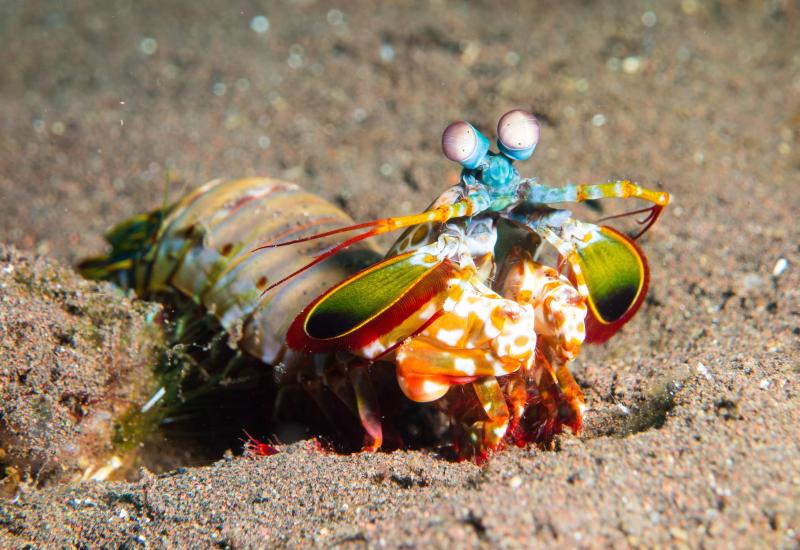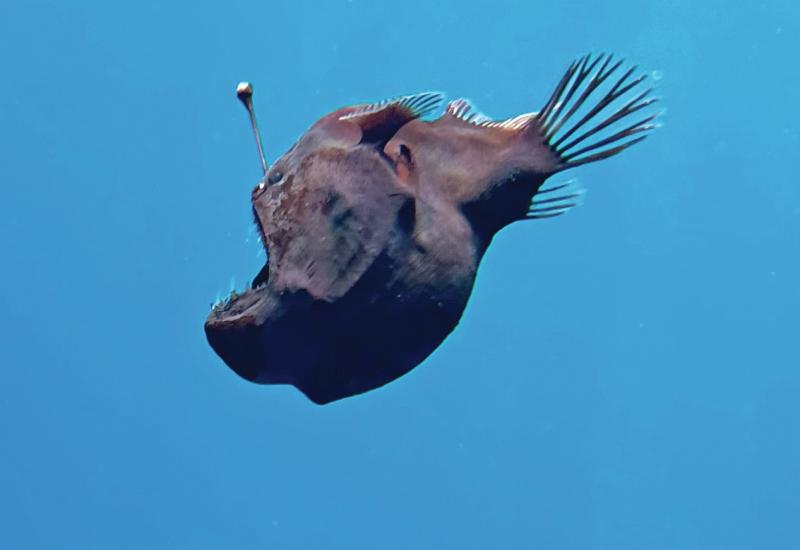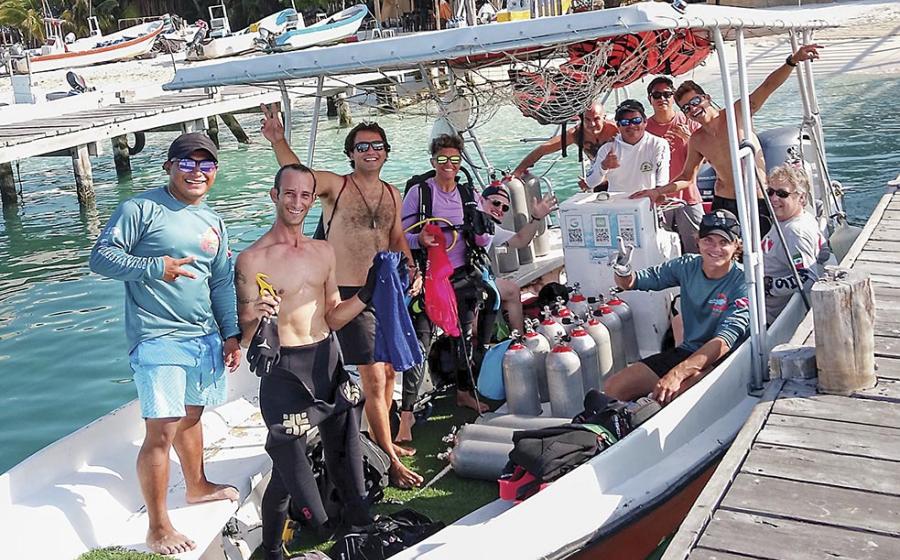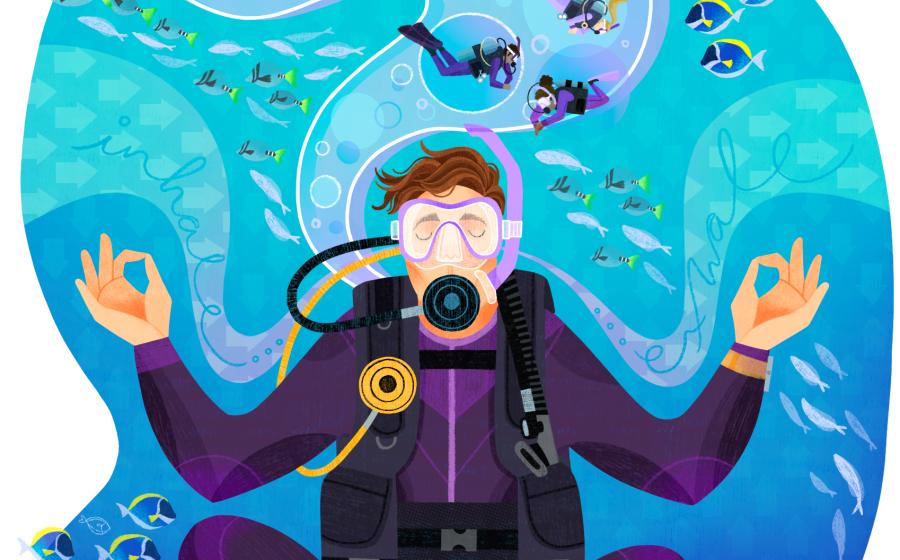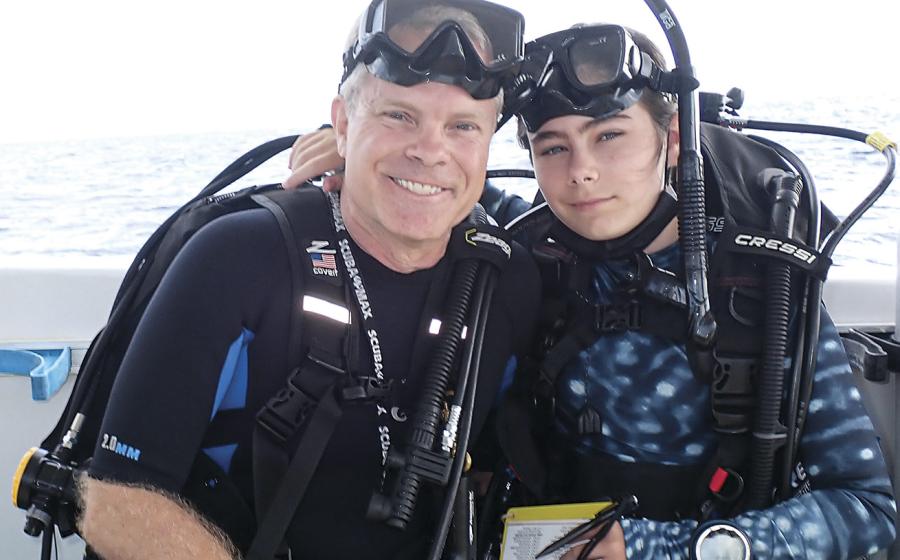How Drowning Convinced This Diver to Save the Sea

Courtesy imageMeenakshi Poonath swims through the waters of Curaçao during her first diving trip in 2020.
The warm day contradicted the vast cool Arabian Sea. Meenakshi Poonath stood at the edge of her charming Maldivian Dhoni boat, impatiently tied to land, clad in gear and enthusiasm. On the 6th of December 2020, the Dutch, 25-time diver had brought her girlfriend, Ankita, to the Maldives to share in her greatest joy: scuba diving. They joked about Meenakshi’s awfully yellow fins and shared a kiss. Everything, Meenakshi reckoned, was as perfect as could be. The two had no idea their lives were about to be irrevocably altered.
At first, the small group of divers and dive instructor descended together. But Ankita surpassed the group, sinking deeper and deeper past her 60-foot certification mark. Meenakshi tore down to retrieve her. She fetched Ankita, and they rose together. Meenakshi mask fogged during the excitement, and she cracked it for a routine clear. But something went wrong — water went up her nose, and she inhaled. A sudden panic tore through her whole body. The pressure of the sea bore down on her.She didn’t drop weights, she didn't inflate her BCD, she didn’t assess the situation, she just swam. Swam to the light, swam fast and swam hard. Her reflex, perhaps loaded with the fear of death, acted against all reason and she began waterboarding, chest full of seawater, losing motor functions. Hypoxia kicked in and as her limbs flailed, giving up, she floated downward again — away from the white light.
Shutting her eyes to life itself, she suddenly, unexpectedly, felt entirely at peace. The marine life embraced her. She thought of her first-ever dive in Bonaire, of how she’d wept after. Of Kerala, her seaside hometown in India she had once intimately known. As she seemed to die, everything became apparent to her. Had she lived, she would want to spend the rest of her life trying to salvage the seas.
The seas appear to have heard her. Several minutes later, Ankita spotted the awful yellow fins turned upside down at 65 feet, floating downward like dead weight. Everything that happened after feels like a miracle to them still. To everyone’s surprise, including the doctors, Meenakshi lived.
"The first thing I did after being discharged from the hospital the next day was go put my feet in the ocean and knew this was only the beginning," says Meenakshi. "The next morning I woke up for the sunrise and began cleaning up the plastic off the beach."
She began researching and investigating the impact large fishing companies and human plastic waste have on the sea. She started small, championing her causes locally, in a small and imitable way, telling everyone that would listen in Amsterdam that we consume a credit-card’s worth of microplastics in an average week through the air we breathe and the food we eat. When asked if her effort felt small at first, or if she feels like it matters at all, she remarked: “When you fight anything, you may need to fight small. But as long as you’re able to influence anyone around you, your fight matters.”
Her conservation research led her to trawling. Reading about how small communities in Kerala, her ancestral home, fish without large motorized trawling nets that destabilize the seabed and harm marine life, she recalled the Maldivian seas. Instead of the epiphanies of her drowning, this time she remembered her first reaction upon arrival—the lack of colour compared to her previous dives and all the dead coral.
A year before her visit, the Maldives Fisheries Act had implemented a complete ban on fishing methods that destroy the seascape, such as trawling, but most of the world hasn’t been as prompt to action.
As she comes up on her un-deadaversary for the first time (which she will commemorate with a dive), Meenakshi wants to make as much noise as possible about the perils of unsustainable fish practices. Amid the Corona chaos, she is plotting an awareness concert, one that uses imagery alongside song and footage. While the plans are still under development keeping in mind the health crisis, the current goal is to begin the concert effort in Germany and work outwards. She plans to urge attendees to collectively ask for non-fishing zones with a focus on Europe to repopulate the ocean. With a belief that if we used smaller fishing nets inspired by local communities, reduce bycatch and stop subsidizing large fishing corporations with a complete ban on trawling around the world, we’ll be able to make a ripple in the sea that eventually makes waves. At the same time, Meenakshi is approaching dive schools and underwater photographers to document the decline of marine health so it can be amplified on social media, helping people understand the harm of unsustainable consumption.
Alive and motivated, she is in nascent stages with her effort, but near-death events are a trigger that can’t be shaken. She lives, and as does her purpose.


